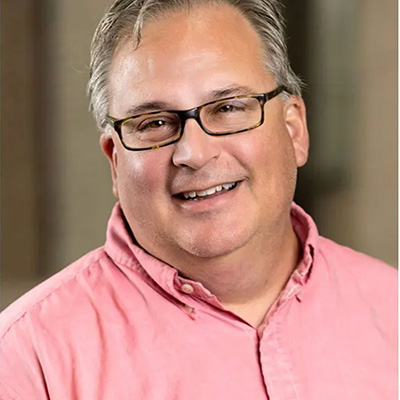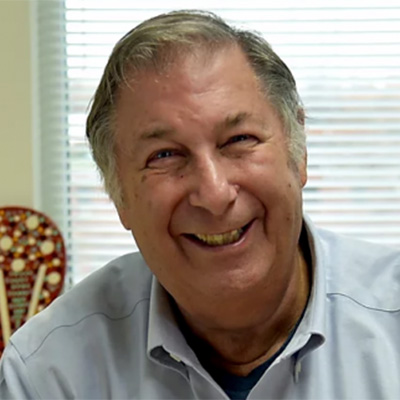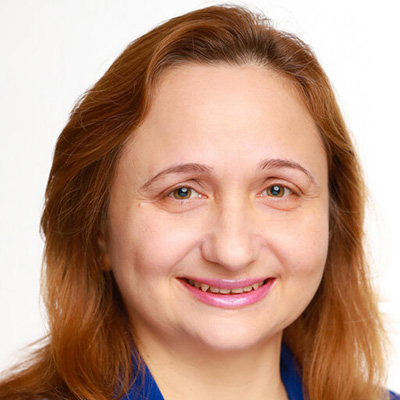NAI names fellows
The National Academy of Inventors recently announced its 2023 class of fellows, which includes four American Society for Biochemistry and Molecular Biology Members: Ana Jaklenec, James Janetka, Fred Kramer and Niketa Patel. The fellows will be honored at the NAI Annual Meeting in Raleigh, North Carolina, in June.




Jaklenec is a principal research scientist and principal investigator at the David H. Koch Institute for Integrative Cancer Research at the Massachusetts Institute of Technology. Her research lies at the intersection of materials science and immunology. Jaklenec’s current projects include developing single-injection self-boosting vaccines, 3D printed on-demand microneedle vaccines and long-term drug delivery systems for cancer immunotherapy. She is an elected fellow of the American Institute for Medical and Biological Engineering College and the Controlled Release Society.
Janetka is a professor of biochemistry and molecular biophysics at Washington University School of Medicine in St. Louis. His lab focuses on drug discovery projects that combine biochemistry, structure-based design and synthetic medicinal chemistry to develop peptidomimetic, glycomimetic and small molecule inhibitors. The lab is developing inhibitors of proteases, kinases, lectins, and G-protein coupled receptors as drugs to treat cancer, bacterial and viral infections, and parasitic diseases. Janetka is a co-founder of Fimbrion Therapeutics, which has a drug for urinary tract infections in human clinical trials.
Kramer is a professor of microbiology, biochemistry and molecular genetics and the associate director of the Public Health Research Institute for Business Development at Rutgers University. His lab develops sensitive, multiplex polymerase chain reaction assays that use DNA fragments in blood samples to detect and quantitate rare mutations for cancer diagnosis, prognosis and therapy. In 2005, he received the Jacob Heskel Gabbay Award in Biotechnology and Medicine from Brandeis University.
Patel is a professor of molecular medicine at the University of South Florida. Her research focuses on understanding the molecular mechanisms of obesity and diabetes, and the metabolic pathways underlying neurodegenerative diseases. Current projects include analyzing genetic signatures of adipose-derived stem cells from lean and obese patients as well as mechanisms in wound healing promoted by exosomes derived from adipose stem cells. Patel has twelve patents describing novel treatment strategies and small molecule drugs targeting noncoding RNA.
“This year’s class of NAI fellows showcases the caliber of researchers that are found within the innovation ecosystem,” Paul R. Sanberg, NAI president, said in a press release; he added that all NAI fellows “are creating innovations that are driving crucial advancements across a variety of disciplines and are stimulating the global and national economy in immeasurable ways as they move these technologies from lab to marketplace.”
Enjoy reading ASBMB Today?
Become a member to receive the print edition four times a year and the digital edition monthly.
Learn moreGet the latest from ASBMB Today
Enter your email address, and we’ll send you a weekly email with recent articles, interviews and more.
Latest in People
People highlights or most popular articles

Finding a symphony among complex molecules
MOSAIC scholar Stanna Dorn uses total synthesis to recreate rare bacterial natural products with potential therapeutic applications.

Sketching, scribbling and scicomm
Graduate student Ari Paiz describes how her love of science and art blend to make her an effective science communicator.

Embrace your neurodivergence and flourish in college
This guide offers practical advice on setting yourself up for success — learn how to leverage campus resources, work with professors and embrace your strengths.

Survival tools for a neurodivergent brain in academia
Working in academia is hard, and being neurodivergent makes it harder. Here are a few tools that may help, from a Ph.D. student with ADHD.

Quieting the static: Building inclusive STEM classrooms
Christin Monroe, an assistant professor of chemistry at Landmark College, offers practical tips to help educators make their classrooms more accessible to neurodivergent scientists.

Hidden strengths of an autistic scientist
Navigating the world of scientific research as an autistic scientist comes with unique challenges —microaggressions, communication hurdles and the constant pressure to conform to social norms, postbaccalaureate student Taylor Stolberg writes.
